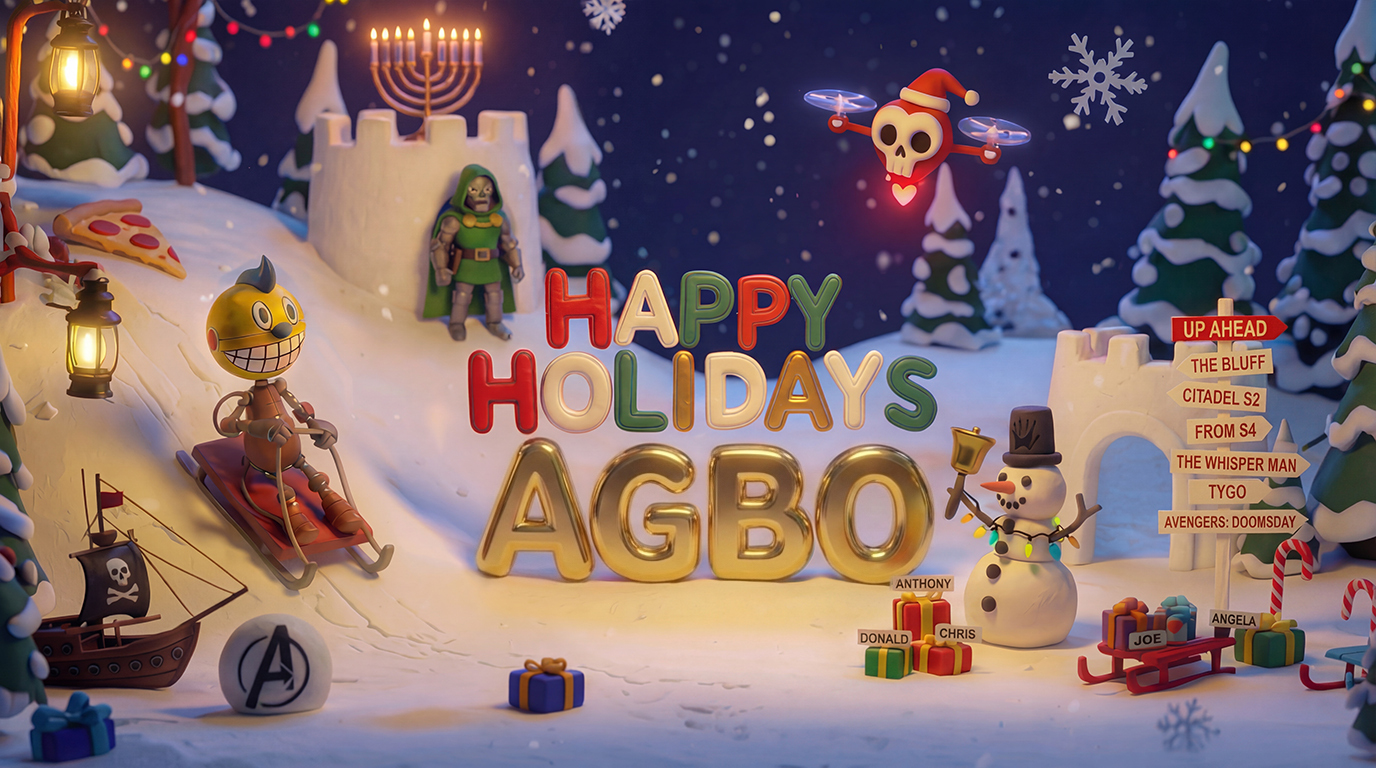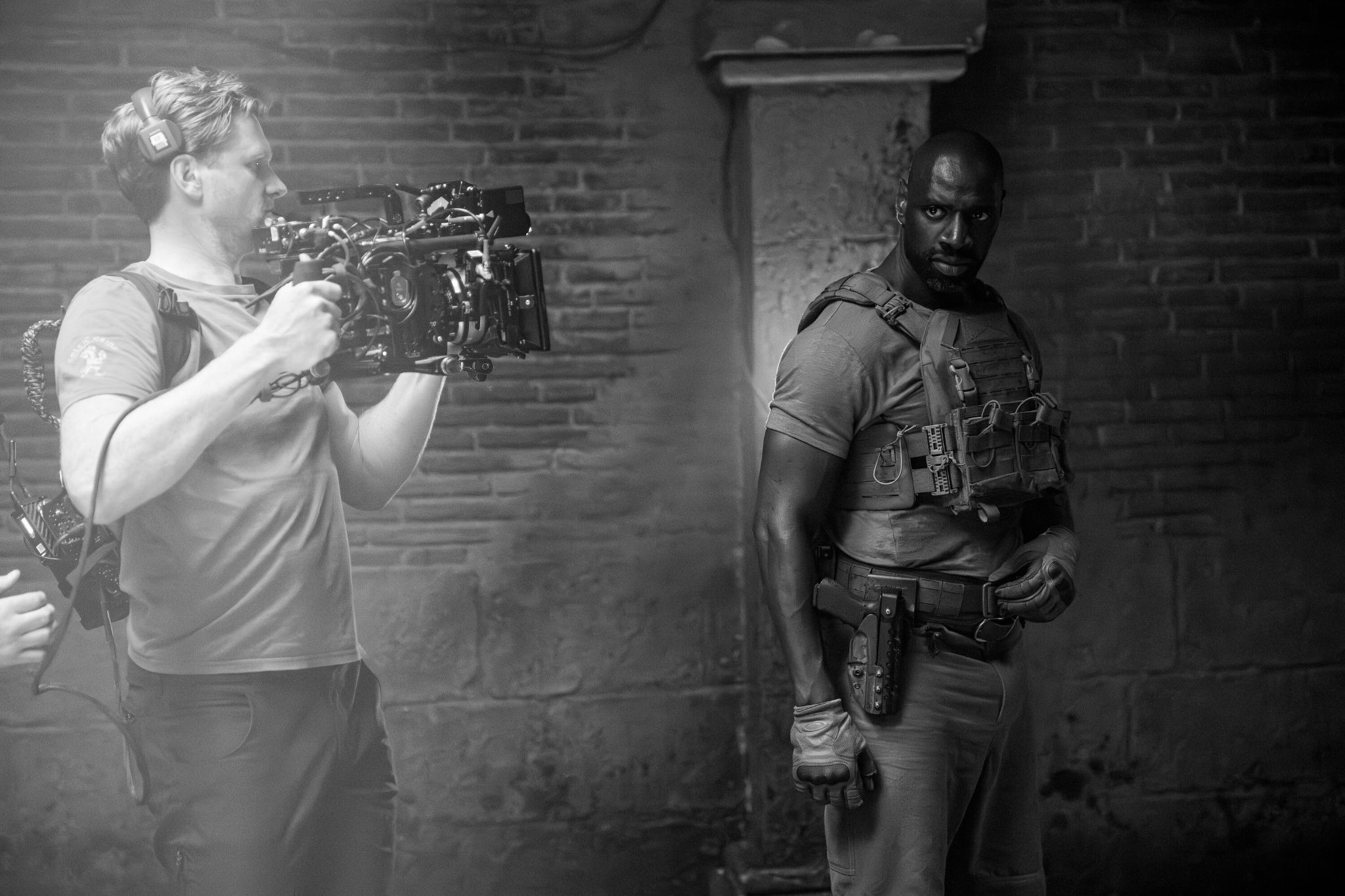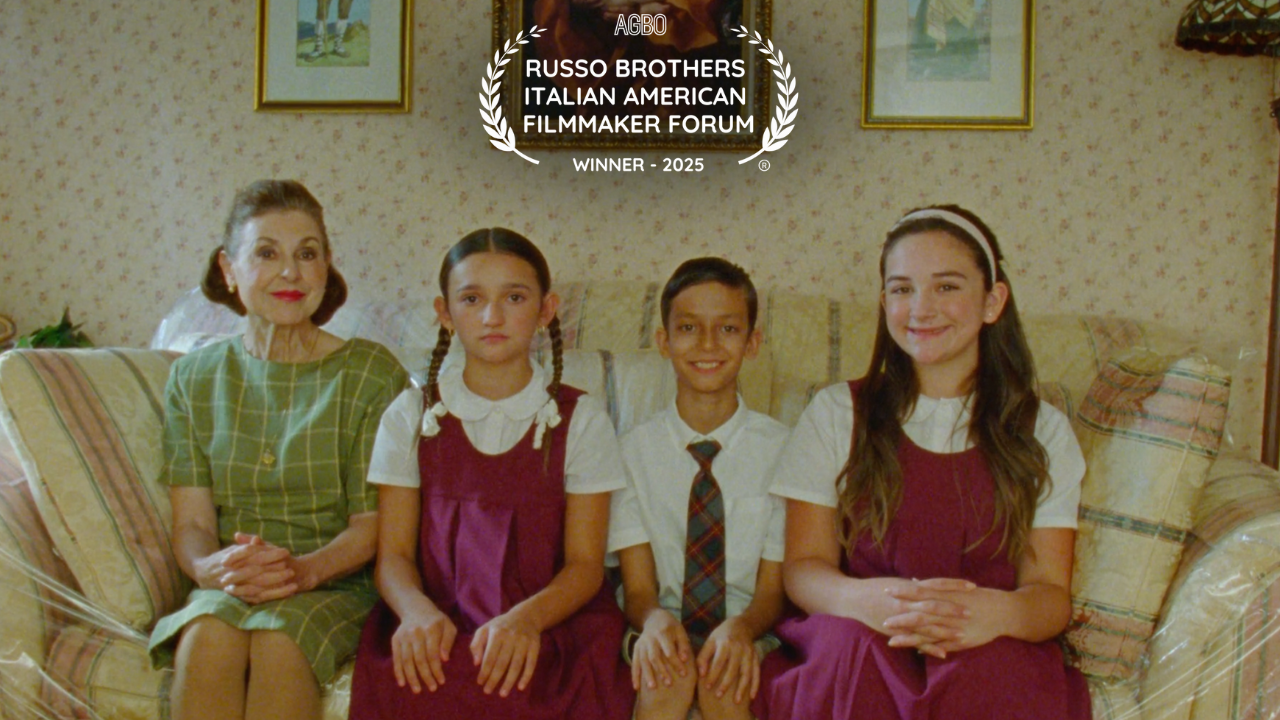🍕🎥Pizza Film School notes: 5 pieces of advice for first-time filmmakers from Candyman’s Nia Dacosta

BYLINE: AGBO Staff
When it comes to ambition and passion in filmmaking, it’s hard to match the drive and versatility of Nia DaCosta.
For a recent episode of Pizza Film School, AGBO’s Anthony and Joe Russo sat down with the accomplished director and screenwriter, who, after studying film at NYU’s Tisch School of the Arts and earning her Master’s in writing from England’s Royal Central School of Speech & Drama, began working as a production associate on several docuseries and was granted a Sundance Institute Directors Lab Fellowship before releasing her first narrative feature, Little Woods. The film, which won the prestigious Nora Ephron Award at the 2018 Tribeca Festival, caught the attention of Oscar-winning director Jordan Peele. The genre-busting Peele then enlisted DaCosta to direct the horror thriller Candyman, which he co-wrote. In 2021, upon Candyman’s debut, DaCosta became the first Black woman director to reach the #1 spot in the U.S. box office.
“Nia has a steady manner about her which you don’t see a lot in the horror space. She’s refined, elegant, every shot is beautiful,” Peele told Cinema Blend.
DaCosta, who’s already made an imprint on film and TV at just 33 years old, continues to run with the momentum of her acclaimed projects: Next up from DaCosta is Marvel Studio’s The Marvels, a sequel to Captain Marvel (2019). This project makes DaCosta the youngest-ever director behind a Marvel movie.
So, how exactly did she go from being fascinated by films, to helming powerful and unique blockbusters? Keep reading to learn the top pieces of advice from Nia DaCosta for when it’s time to take a leap of faith and bring your vision to the big screen.
Watch Nia Dacosta on the Pizza Film School only on the AGBOVERSE.
Use traditional dramatic forms to fine-tune your artistic voice—and then trust it.
For me, the biggest thing throughout my work history is honing my instincts of and [...] trying to understand what that means for what movies I make [...] Trusting my own voice has been a big thing. To get to that point, I think one of the biggest things for me was going to grad school in the UK, and learning drama through theater – writing, acting, and dramatic action. Writing a script and then breaking the script down as an actor is like two sides of the same coin: You’re both doing the same things, but [the actors] are doing it in reverse… I thought I would write plays forever. And then I went to America and thought, ‘I’m gonna take over the world.’ I did the director’s lab at Sundance, and that was hugely helpful to get me back into film director space.
Be thoughtful and intentional when it comes to editing and pacing.
I try not to cut too much, that’s something I’ve always been really conscious of. You can do so much with just blocking and people moving and the camera moving. But it’s also so tempting when you’re doing action just be like, ‘Pew, pew, pew,’ [and then] cut so, so much. That can be fun and frenetic – like, I love Jason Bourne – but I do feel there’s an ease to just [being] more measured with it, which I think is what’s thoughtful [about it]. I also think pacing has changed in movies because of Avid.
Learn the power of the pitch deck.
I used to associate produce branded content and would make decks for pitches to Nike, Under Armour, and all these clients. I hated that job, but that job gave me the skills I have now to make really good pitch decks. I remember complaining and telling my mom that I just wanted to be a filmmaker. But then I realized that actually everything you do before filming informs it.
Now, I go on Keynote and I basically break it down into sections: Here’s the story I want to tell, here’s how I want to shift… Here’s what I would emphasize or de-emphasize. And then I have a section about the look: where I feel we should use wide shots, what I think the color palette should be. I get really into the details of production design and costume design, who I want to hire for the score. I go online and find the images. You have text and images going together, [and] the whole thing is around 80 pages. Sometimes, it’ll be just the images [that] I’m clicking through.
Be diligent and work hard.
Diligence overall is one of the most important things about directing a feature. There’s so much technology that exists [for filmmakers] and anyone can use it to tell a story. But then the challenge is that you [also] have to communicate that story to hundreds of people, and usually through 20 department heads. So there’s so much diligence that has to go into it, so much work. You have to [be able to] see the big picture and hold it in your hands. My first one, I could do that. [For] my next one, I can certainly do that.
Once you’re ready to make your film: Rehearse, rehearse, rehearse.
For all of my films, blocking rehearsals and doing rehearsals before shooting is so fun and useful. It takes me back to that theater space, which I really like. It also gives the actors agency, space, and time to really consider character and movement and physicality. They know their voices are being heard and appreciated. That’s really important for me.
Want to hear more first-hand advice from filmmakers? Make sure to catch up on previous PFS episodes here, and don’t forget to subscribe to our newsletter.
.jpg)
Hello from the Russo Brothers!
We make content for fans, and here on AGBOVERSE we are giving you an exclusive behind the scenes look at our content. Sign up now to make sure you don’t miss a thing!

.png)
.jpg)
.jpg)
.jpg)



.svg)

.svg)
.svg)